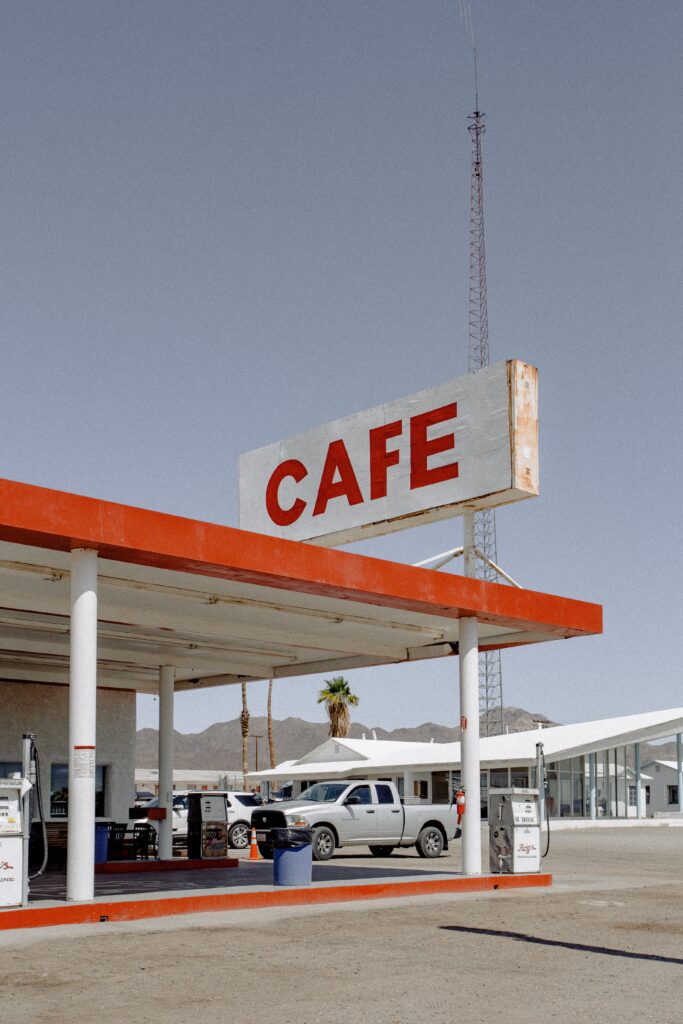
The gas station industry stands tall as a lucrative opportunity, generating over $250 billion in revenue each year. With more than 120,000 gas stations scattered nationwide, it’s an industry that shows no signs of slowing down. If you’re considering investing in this potentially profitable business, there are some crucial aspects to be aware of before taking the plunge. From understanding the differences between franchised and independent gas stations to navigating the legal and environmental considerations, this article will provide you with the essential knowledge you need to make an informed decision. We’ll delve into the significance of convenience stores, the critical role of location, and the importance of conducting thorough assessments to safeguard against potential risks. Join us as we explore the ins and outs of purchasing a gas station franchise, and discover what it takes to thrive in this dynamic industry.
Introduction
Gas stations are a ubiquitous part of the American landscape, serving as essential stops for motorists and providing vital services and products. However, owning and operating a gas station is not as simple as it may seem. There are numerous factors to consider before venturing into this industry, especially if you are considering purchasing a gas station franchise. In this article, we will delve into the important aspects you need to know before buying a gas station franchise, including legal considerations, profitability factors, environmental concerns, and the importance of thorough planning.
The Lucrative Business of Gas Stations
The gas station industry is undeniably lucrative, with it generating over $250 billion in revenue annually. With over 120,000 gas stations scattered across the country, there is a constant demand for fuel. This demand is driven by the ever-increasing number of vehicles on the road. As such, owning a gas station presents a promising opportunity for entrepreneurs seeking a profitable business venture.
Franchised vs. Independent Gas Stations
When considering purchasing a gas station, you have the option to either invest in a franchised gas station or operate as an independent station. Franchised gas stations are owned and operated through a franchise agreement with a national supplier. They offer branded fuel and benefit from the established reputation and marketing efforts of the franchisor. On the other hand, independent gas stations sell unbranded fuel from regional suppliers. While they have more freedom in terms of operations and pricing, they lack the support and recognition provided by a well-known brand.
Legal Factors to Consider in Purchasing a Gas Station Franchise
Before finalizing the purchase of a gas station franchise, it is crucial to thoroughly understand the legal aspects involved. Key factors to consider include the terms of the franchise agreement, which outline the rights and responsibilities of both the franchisor and franchisee. Additionally, you should be aware of any quotas or requirements for fuel sales imposed by the franchisor. Another important consideration is the ownership and maintenance of fuel pumps and tanks, as regulations may vary depending on the location.
The Profitability of Convenience Stores at Gas Stations
While fuel sales are a significant source of revenue for gas stations, they often make the most profit from selling convenience store products. Therefore, having a convenience store attached to the gas station is crucial for maximizing profitability. Offering a wide range of snacks, drinks, and other convenience items can entice customers to make additional purchases, contributing to the overall success of the business.
Environmental Concerns in Gas Station Ownership
Environmental concerns play a significant role in gas station ownership. Contamination of the soil and groundwater can occur over time, leading to expensive remediation processes and potential restrictions on future operations. To mitigate these risks, it is essential to conduct an environmental site assessment before purchasing a gas station. Additionally, having double-lined tanks is a mandatory precaution to prevent leaks and minimize the potential for environmental damage.
The Importance of Assessing Long-Term Plans and Traffic
The success of a gas station heavily relies on its location and the amount of traffic it attracts. Therefore, thoroughly assessing the long-term plans for the area is crucial. This includes considering any construction projects that may hinder access to the gas station or divert traffic away from it. Understanding the current and projected traffic patterns can help determine the viability and profitability of the gas station in the long run.
Creating a Comprehensive Business Plan for Your Gas Station
One of the keys to a successful gas station venture is creating a comprehensive business plan. This plan should outline your vision for the business, the products and services you intend to offer, and the strategies you will employ to attract customers and generate revenue. Additionally, it should include an organizational structure that outlines staff roles and responsibilities. Considering insurance, taxes, and other expenses in your financial projections is also vital for an accurate assessment of the business’s potential.
Steps to Take When Purchasing a Gas Station Franchise
If you decide to invest in a gas station franchise, there are specific steps you should take to ensure a smooth process. First, it is crucial to include an “environmental contingency clause” in the purchase agreement. This clause allows for appropriate actions to be taken in the event of environmental issues. It is also important to obtain an environmental site assessment to identify any potential contamination risks. Even if you are leasing the property, evaluating the potential for contamination is essential to protect yourself from future liabilities.
Conclusion
Buying a gas station franchise can be a lucrative business move, but it requires careful consideration and thorough planning. Legal factors, environmental concerns, and the profitability of convenience stores are among the many aspects that demand attention. Furthermore, assessing long-term plans and traffic patterns can significantly impact the success of your gas station. By creating a comprehensive business plan and taking the necessary steps to mitigate risks, you can set yourself up for a prosperous future in the gas station industry.

